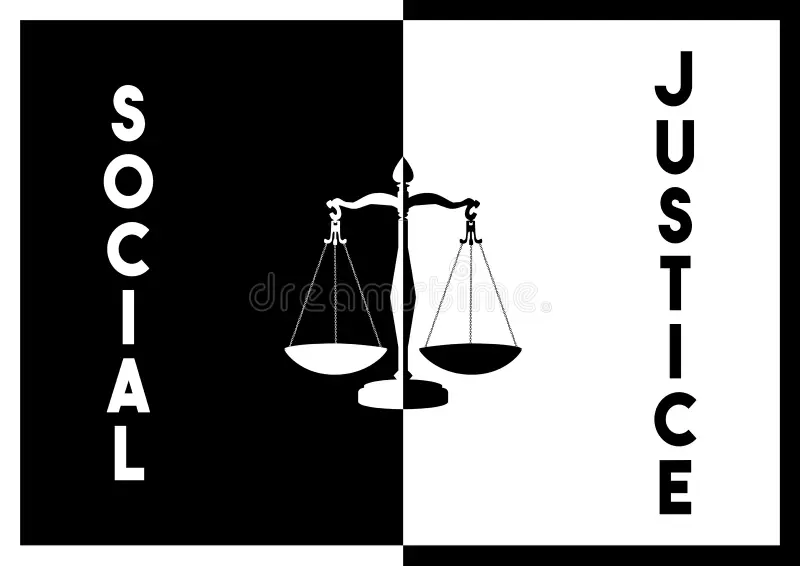Introduction
Social justice is a foundational principle of the Indian Constitution, aiming to create an equitable society by addressing historical injustices and ensuring equal opportunities for all citizens. The Preamble explicitly mentions “Justice—social, economic, and political,” underscoring its significance in the nation’s legal and moral framework.
Meaning of Social Justice
Social justice refers to the fair and just distribution of resources, opportunities, and privileges within a society. In the Indian context, it involves dismantling systemic barriers such as caste discrimination, gender inequality, and economic disparities to promote inclusivity and equality.
Aim of Social Justice
The primary aim is to establish a society where every individual, regardless of background, has equal access to rights and opportunities. This includes:
- Eradicating social inequalities
- Ensuring equitable distribution of wealth
- Providing equal opportunities in education and employment
- Protecting the rights of marginalized communities
Necessity of Social Justice in India
India’s diverse social fabric has historically been marred by hierarchical structures and discrimination. Implementing social justice is crucial to:
- Address historical injustices
- Promote national integration
- Foster economic development by utilizing the potential of all citizens
- Strengthen democratic values
Constitutional Provisions Ensuring Social Justice
The Indian Constitution incorporates several provisions to uphold social justice:
1. Preamble
Declares India as a “Sovereign Socialist Secular Democratic Republic” and ensures “Justice—social, economic, and political.
2. Fundamental Rights (Part III)
- Article 14: Equality before the law
- Article 15: Prohibition of discrimination
- Article 16: Equality of opportunity in public employment
- Article 17: Abolition of untouchability
- Article 21: Protection of life and personal liberty
3. Directive Principles of State Policy (Part IV)
- Article 38: State to secure a social order for the promotion of welfare
- Article 39: Equal pay for equal work, protection of children and youth
- Article 41: Right to work, education, and public assistance
- Article 46: Promotion of educational and economic interests of Scheduled Castes, Scheduled Tribes, and other weaker sections
4. Fundamental Duties (Part IVA)
- Encourage citizens to promote harmony and the spirit of common brotherhood.
Types of Social Justice
- Economic Justice
Focuses on fair distribution of wealth and opportunities. It supports state interventions (e.g., land reforms, minimum wages, wealth redistribution via progressive taxation) so the least advantaged gain access to resources - Social Justice
Relates to eliminating discrimination based on caste, gender, religion, etc. Constitutional tools include abolition of untouchability (Art 17), equal treatment (Arts 14–15), and rights for minorities and vulnerable groups . - · Political Justice
Ensures equal participation in democratic processes. Articles 16 (public employment), 330/332 (reserved parliament seats), and the women’s reservation bill enhance political equality - · Cultural Justice
Preserves cultural identity by safeguarding minorities’ right to speak their language and manage their educational institutions (Arts 29–30).
Importance of Social Justice
- Empowerment of marginalized communities through reservations and affirmative actions; ensures historically disadvantaged groups can access education, employment, and political representation
- Social harmony and national integration by reducing caste- and gender-based inequalities and fostering inclusion .
- Democratic and moral fulfillment, reflecting India’s constitutional ethos of “justice, social, economic and political” in its Preamble
Historical Context
- Pre-Independence era: Domination of caste, gender, and religious inequalities. Mohandas Gandhi & B.R. Ambedkar galvanized public debate for rights and dignity
- Constituent Assembly (1946–1950): Embedded social justice ideals into the Preamble, Fundamental Rights, DPSPs, and Directive principles like Article 38 & Article 39
- Progressive amendments:
- Land reforms and reservations (1951)
- Women’s reservation (106th Amendment, 2023) for 33% seats
- Extensions via the 44th, 73rd/74th, 86th Amendments for education, panchayats, and governance
Challenges
- Caste bias and violence, with laws against atrocities poorly implemented in many regions
- Economic disparity, where growth hasn’t prevented wealth concentration and excluded the poor
- Judicial delays: Over 35 million pending cases worsen access-to-justice issues
- Poor implementation of free legal aid, rural courts, and office language barriers .
- Digital divide and educational inequities, especially among marginalized castes
- Backlash and misuse of affirmative systems: some view reservations as politically manipulated
Suggestions to Strengthen Social Justice
- Legal and judicial reforms:
- Introduce more e‑courts, fast-track tribunals, and accelerate judge recruitment
- Amend Collegium system for broader representation and accountability
- Grassroots empowerment:
- Revive and resource nyaya panchayats to simplify dispute resolution .
- Use tech like DBT to secure welfare scheme delivery
· Awareness and capacity-building:
- Campaigns to educate marginalized groups about legal rights
- Train local officials to manage sensitive cases on gender/caste.
· Policy integration:
- Synchronize welfare efforts across education, health, employment and digital inclusion
- Prioritize digital literacy in disadvantaged communities
Conclusion
Social justice forms the bedrock of India’s constitutional democracy. The Constitution, with its rich tapestry of rights, directives, and judicial interventions, equips the nation to fight inequality. However, persistent socio-economic disparities, systemic biases, and implementation weaknesses present ongoing challenges.
Way forward lies in robust legal reforms, technology-driven governance, decentralization, civic awareness, and tighter policy synergy. By integrating constitutional ideals with grassroots action and modern tools, India can truly realize the vision of an egalitarian, inclusive, and just society.
CONTRIBUTED BY—ANSHU (INTERN)

